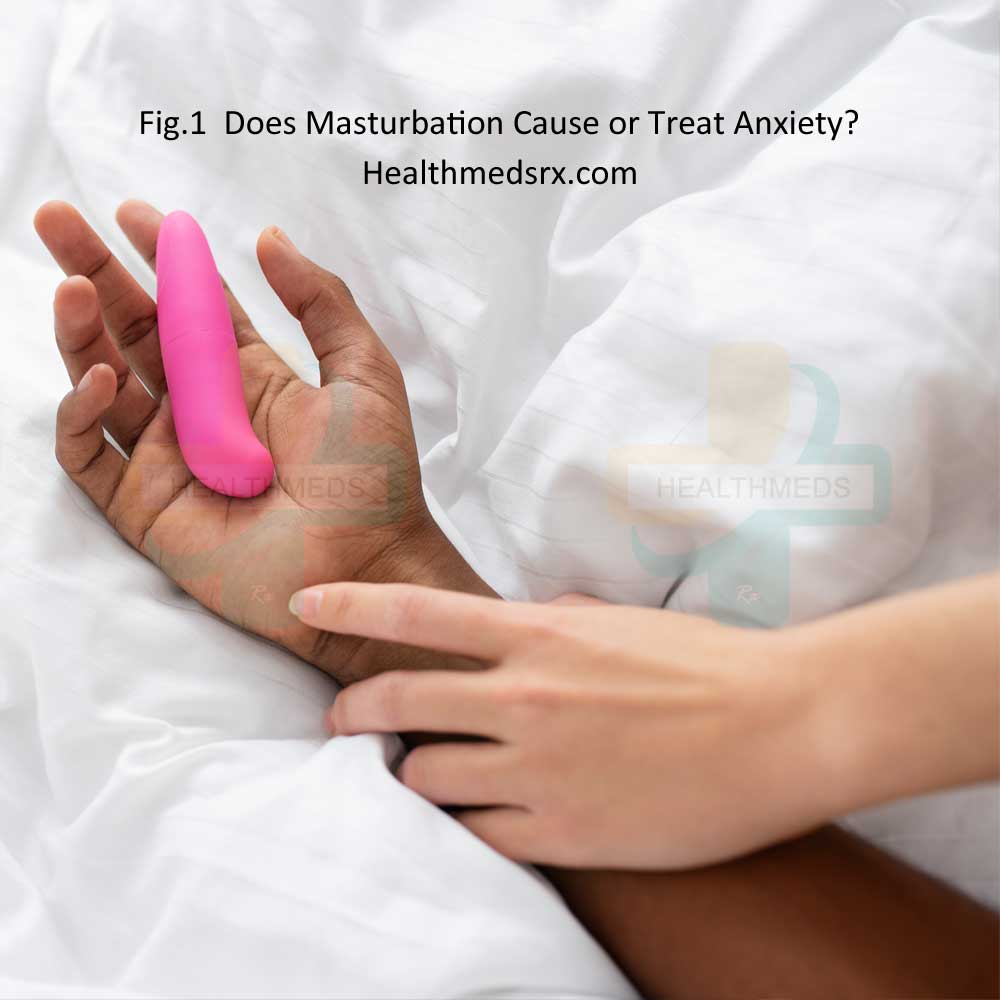Masturbation is usual sexual activity. For many people, it is a very natural and healthy sexual practice to explore their bodies and find pleasure. Few people experience mental health problems because of masturbation, including feelings of anxiety, mood disorders, or guilt. But Anxiety is the most common mental health issue faced by millions of people. Here we will explain the relationship between masturbation and anxiety whether it causes or treat anxiety.
The Relationship Between Masturbation & Anxiety:
Masturbation as a Cause of Anxiety:
1. Religious Factors
Some religions and Cultures view masturbation as spiritually or morally wrong a result leading to feeling guilt and anxiety.
The difference of opinion between personal desires and societal consequences can lead to anxiety related to masturbation.
2. Shame or Guilt:
A person who have hold negative beliefs regarding sexuality can experience shame or guilt once engaging in masturbation, clearly triggering or worsening anxiety.
Masturbation’s internalized social stigma can cause unfavorable feelings and anxiety.
3. Obsessive-Compulsive Disorder (OCD):
Masturbation-related intrusive thoughts or obsessions can make OCD sufferers anxious.
Excessive or ritualized masturbation-related compulsive behaviors may make anxiety symptoms worse.
Masturbation as a Possible Anxiety Treatment:
1. Endorphin and dopamine release:
Masturbation can trigger the neurotransmitters endorphin and dopamine, which are linked to pleasure and mood-improving effects.
These neurochemicals can temporarily relieve the signs and symptoms of anxiety.
2. Stress Relief and Relaxation:
Masturbation encourages relaxation and acts as a type of self-care, which can help lower levels of tension and anxiety.
Sexual self-stimulation may have a relaxing impact, promoting relaxation and easing anxiety-related symptoms.
Anxiety and Masturbation: Expert Opinions
A. Viewpoints of Mental Health Professionals:
The connection between anxiety and masturbation is a subject of debate among mental health specialists.
Some claim that masturbation can be a positive outlet for sexual energy, enhance emotional wellness, and even lessen anxiety.
Others emphasize the need to address the underlying psychological causes of worry rather than utilizing masturbation as the main form of treatment.
B. Results of Scientific Research:
There have been few scientific investigations into the connection between the two.
Masturbation, as part of a balanced sexual life, may, according to research on sexual activity and mental health, have a good effect on psychological well-being and lower levels of anxiety.
Factors to be Considered in Mind
A. Individual Differences:
Everyone has a different experience with both.
The way a person reacts to masturbation and how it affects anxiety might vary depending on a variety of factors, including personal beliefs, cultural background, and mental health concerns.
B. Moderation and Balance:
When it comes to masturbation, moderation is crucial, just like with any behavior.
To preserve general well-being and effectively handle anxiety, one must strike a balance between sexual self-stimulation and other coping techniques.
Managing masturbation-induced anxiety
It’s crucial to keep in mind that you’re not the only one who experiences anxiety associated with masturbation. Similar thoughts and sensations are experienced by many people. Here are some techniques to assist you deal with anxiety brought on by masturbation:
Normalize the experience:
Recognize that masturbation is a normal and common pastime to normalize the feeling. It can provide a number of physical and psychological advantages and is a natural aspect of human sexuality. The uneasiness brought on by this can be eased by understanding it.
Educate yourself:
Get educated about the biological and psychological effects of masturbation. By giving a person a wider perspective, knowing the science underlying it and its possible advantages might help reduce anxiety.
Challenge negative thoughts:
Challenge your negative thoughts because they frequently lead to anxiety. Dispel any unfavorable or unreasonable ideas you may have regarding masturbation. Keep in mind that it’s a common and beneficial exercise.
Practice self-compassion:
Self-compassion requires being kind to oneself and refraining from self-criticism. Keep in mind that every person has a different sexual history and preferences. Empathize with and accept yourself.
Set personal boundaries:
Establish personal boundaries that are in line with your degree of comfort. Choose the frequency, privacy, and personal values that feel right to you. Having defined boundaries can give one a sense of control and reduce anxiety.
Communicate with a supportive person:
Communicate with someone who will be encouraging: If it makes you feel comfortable, think about talking to a mental health professional, a partner, or a trusted friend about your worries. Sharing your ideas and feelings with others can reassure you and serve to normalize your experiences.
Practice relaxation techniques:
Practice relaxation techniques by engaging in activities like gradual muscular relaxation, deep breathing, or meditation. These methods can aid in lowering general anxiety levels and encouraging calm.
Distract yourself:
Engage in things that will take your mind off your nervous thoughts to distract yourself. Find hobbies, exercise, hang out with pals, or explore your creative side. Keeping busy can be beneficial for managing anxiety.
Seek professional help if needed:
If necessary, seek professional assistance: You might want to speak with a mental health expert if your anxiety continues to interfere with your everyday life. They can offer you customized advice and support to help you deal with your particular issues.


